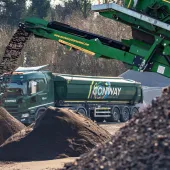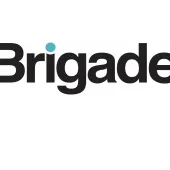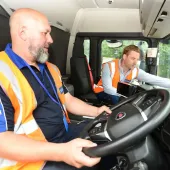FTA concerned over London’s Direct Vision Standard

Freight Transport Association says limits on safety benefits and business impacts still unclear
THE Freight Transport Association (FTA) has reacted with concern to the Mayor of London’s consultation paper, published earlier this week (24 January), regarding the introduction of new, London-specific requirements for direct vision from the cabs of HGVs.
Direct Vision Standard (DVS) uses a ‘star rating’ from 0 to 5 to rate HGVs based on the level of vision the driver has directly from the cab. Zero star-rated HGVs will be banned from London’s roads in 2020, with only those vehicles achieving a rating of three stars or above allowed from 2024.
The FTA’s head of national and regional policy, Christopher Snelling, commented: ‘Direct vision is clearly a benefit in safety and the FTA has advised operators for many years to procure vehicles with the best possible sightlines.
‘However, there are limits to the benefits, which means regulating in this way may not be the best answer to improving safety on our roads.
‘Research for Transport for London (TfL) has shown that no amount of direct vision would help in most cyclist incidents. Technology may prove a better route to minimizing casualties as quickly as possible.
‘Following advice from TfL, many operators have invested in cameras and sensors to eliminate blind spots around cabs with apparent success, as the rates of cyclist safety in London have improved significantly in recent years, but now that work is to be mostly ignored as it is not accounted for under the DVS,’ said Mr Snelling.
He continued: ‘What London business really needs now is clarity concerning the vehicles that will be affected. Many operators are now in the invidious position of needing to procure vehicles to prepare for the Ultra Low Emission Zone in 2019, and yet cannot do so due to the uncertainty over which vehicles will be allowed on London’s roads in 2020 or 2024.
‘Based on the research conducted to date, it is impossible to assess the outcomes of this ruling on many kinds of general distribution HGVs, as well as industrial vehicles such as tippers. We understand more detailed information will be made available before the summer, but industry needs this information before it can assess in full the business challenges involved.
‘Vehicle design is a global industry and these discussions are best carried out at a European or UN level. But if London is to proceed with this approach, it needs to be ready to make the plan work for logistics so that small hauliers are not pushed out of business. Above all, the benefits of current and future technological solutions must not be ignored.’









